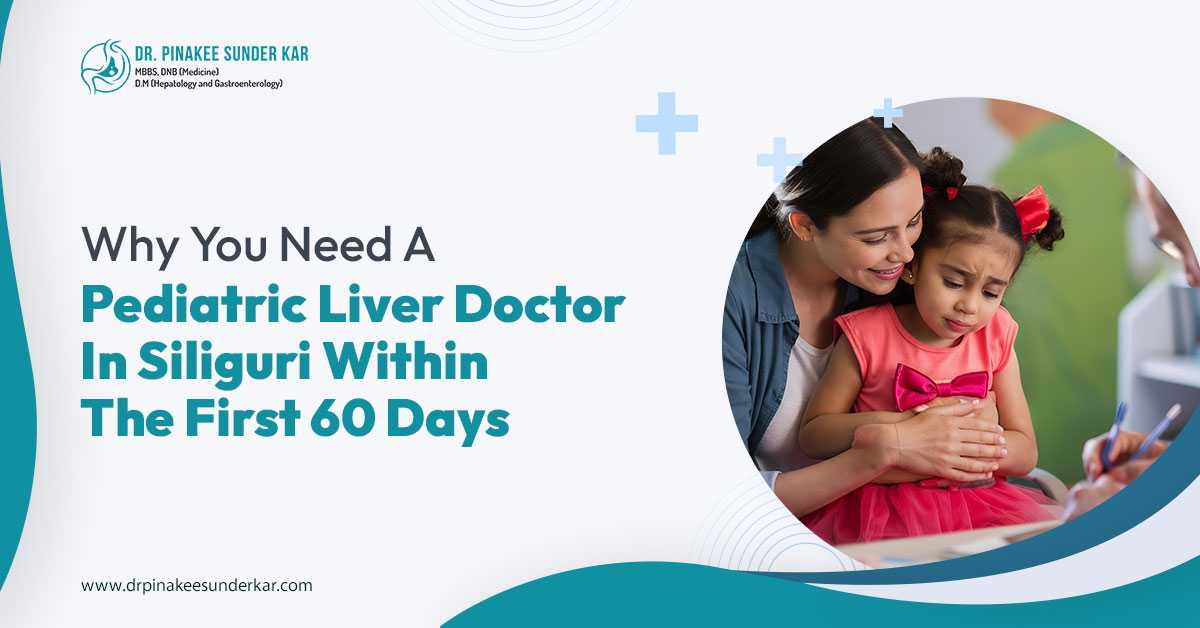Lactose intolerance is not very common among children, but some infants experience it. This may be due to their diet primarily comprising milk, which is an essential food. While milk contains essential calcium and nutrients, it can affect digestion in children. Infants often experience stomach discomfort along with other symptoms such as bloating.
According to an experienced child gastrologist in Siliguri, while this condition is not life-threatening for children, it can affect their nutrition and development. To prepare, parents need to have the right information about this condition. This blog will help you to understand the causes of this condition and provide insight into every important aspect.
What is Lactose Intolerance?
Lactose intolerance, frequently observed in adults, results from the body's struggle to properly digest lactose. Lactose, often referred to as milk sugar, is a naturally occurring carbohydrate primarily present in milk and dairy items. Effective lactose digestion relies on the production of an enzyme called lactase.
When the body doesn't produce enough of this enzyme, the dairy remains undigested in the small intestine. A gastrologist in Siliguri states that this further results in the food remaining undigested while making its way into the colon, where it ferments and causes symptoms such as gas, diarrhea, and bloating. Often, this fermentation also causes stomach cramps, making the children unwell.
What Causes Lactose Intolerance in Children?
There are three specific types of Lactose Intolerance, and they have their separate causes:
Primary Lactose Intolerance- Most often, this type emerges as we age.. In some children, this is relevant as the body tends to limit lactase production after the weaning period.
Secondary Lactose Intolerance- According to a child gastrologist in Siliguri, this is caused due to illness or injury to the small intestine. Most of the time, it is due to conditions such as gastroenteritis, celiac disease, or other diseases that reduce the production of lactase enzymes.
Congenital Lactose Intolerance- This is a very rare condition related to genetics in which babies are bro with little or no ability to produce the lactase enzyme. It can be identified by a specialist right after birth.
Common Symptoms of Lactose Intolerance in Children
Symptoms related to lactose intolerance usually occur within about 1 hour after having dairy foods or beverages. The symptoms tend to vary among children, but the most common ones include
● Stomach cramps
● Nausea or vomiting
● Bloating
● Severe abdominal pain
● Diarrhea
● Gas
Tips for Managing Lactose Intolerance
Lactose intolerance can be managed effectively in children with a few lifestyle changes.
Adjustment in dairy intake- To make sure that the child doesn't face serious issues, you can try to introduce a small amount of dairy to their diet. However, if they even react to a small amount of dairy, then you can completely restrict the use of dairy in their diet.
Try lactose-free alternatives- If the child likes milk and dairy products, you can introduce lactose-free alternatives such as soy milk and almond milk. You can also try other dairy products, such as vegan butter, and cheeses, such as cheddar and Colby.
Lactase supplements- Lactase supplements can be very helpful in managing the lower level of lactase production. This can be prescribed by a gastrologist in Siliguri if the children are regularly affected by symptoms of lactose intolerance.
Add calcium- To cover up the loss of calcium provided by milk, you can add foods such as leafy greens, broccoli, as well as canned salmon. This can help with the bone development of the child without the intake of milk.
Conclusion
Lactose intolerance doesn’t mean your child has to miss out on good nutrition or tasty food. With early diagnosis and proper guidance, children can thrive without discomfort.
Keep an eye on your child’s symptoms, experiment with dairy alternatives, and never hesitate to seek medical advice. Support from a knowledgeable child gastrologist in Siliguri will also ensure your child gets the right nutrients while staying symptom-free.







